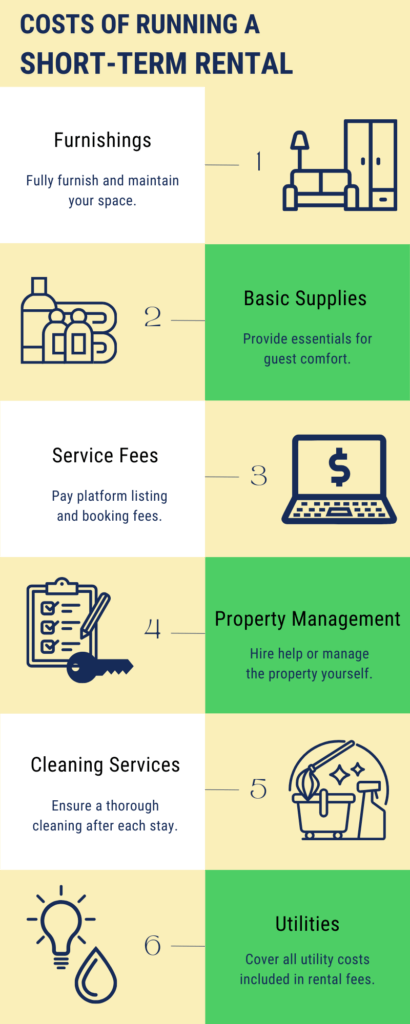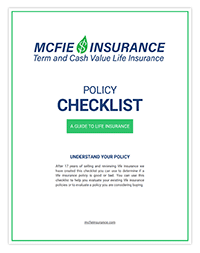317-912-1000
317-912-1000

Short-term rentals present an opportunity for investors looking to boost their cash flow, offering higher returns compared to traditional long-term rental properties. However, this investment avenue also introduces unique challenges that can catch even seasoned landlords off guard. Among these challenges are the rapid turnover of guests, which demands more frequent cleaning and maintenance, and a growing number of local regulations that govern short-term rental operations.
Industry experts emphasize that the short-term rental market has grown increasingly competitive in recent years. As a result, it’s more important than ever for prospective investors to conduct thorough research and carefully craft a strategic approach before diving into this type of property investment. Proper preparation can make the difference between a successful venture and one fraught with unexpected difficulties.
If you’re considering investing in your first short-term rental property, here are six essential points to keep in mind. These considerations will help you navigate the complexities of the market and set you up for long-term success in this fast-paced investment arena.
 57-page slide deck
57-page slide deckMany people are losing money with typical financial planning. Even people who were "set for life" are running out of money in retirement. Here's an easy guide with 3 things you can do to become wealthier.
Download here>
Short-term rentals have surged in popularity, but they aren’t always welcomed with open arms by every city or municipality. For example, Santa Monica, California, strictly prohibits rentals shorter than 30 days unless the property owner stays on-site with the guest. In contrast, Chicago allows unhosted short-term rentals but requires property owners to register their units and pay associated fees. These differing regulations highlight how local governments are grappling with balancing the benefits and challenges of short-term rentals within their communities.
If you’re thinking about investing in a new location, it’s critical to stay well-informed about both current laws and any proposed changes concerning short-term rentals. Local officials’ attitudes and upcoming legislation can dramatically impact your ability to operate successfully in this space.
In markets where the regulatory landscape seems uncertain or in flux, investors should proactively develop a backup plan—a “Plan B” strategy—that can pivot their property to other uses if stricter rules are implemented. This flexibility helps safeguard your investment and reduces risk.
Even if your main investment goal is traditional long-term rentals, keeping abreast of short-term rental regulations is smart. This knowledge ensures you’re prepared if tenants express interest in listing your property on short-term rental platforms, protecting you from legal or financial complications.
Unlike a long-term rental where the monthly rent is fixed and predictable, the income from a short-term rental fluctuates based on the nightly rate and the number of bookings you secure.
Online tools such as AirDNA and Rabbu offer data on short-term rental prices and occupancy rates across various markets.
Invest time in reviewing listings of competing properties on platforms like Airbnb and VRBO to better understand the potential rate your property could fetch. While you may not be able to match the nightly rate of a luxury unit with exclusive perks, if a competing property appears run-down, you might be able to charge more for yours.
If you plan to invest in an area with seasonal tourism, expect your rates and bookings to vary throughout the year.
 |
An easy read and a perfect introduction to whole life insurance and The Perpetual Wealth Code™ Available in eBook or Audiobook format. Download here> |
Higher per-night rates generally mean that short-term rental properties can generate more cash flow than long-term rentals, but this extra revenue incurs additional costs. For instance, unlike typical long-term rentals, short-term units need to be furnished. While the furnishings and amenities don’t have to be extravagant, investing in a designer can enhance the unit’s appeal, making it a more attractive stay.
Short-term rentals also demand more hands-on management. Owners must ensure units are cleaned and prepared for new guests after each stay, and handle bookings and guest inquiries personally.
For those who prefer not to manage these tasks themselves, property managers who specialize in short-term rentals are available, though they usually charge higher fees than long-term rental managers. Alternatively, owners can use online tools like OwnerRez, Hospitable, or Guesty to automate tasks such as managing listings on multiple platforms, handling bookings, and scheduling cleanings.
One benefit of frequent turnover is that it allows maintenance issues or other problems to be identified and addressed quickly, often during routine cleanings between guests, thus preventing them from escalating into major concerns.

Other Things To Consider For Short Term Rentals
When managing a short-term rental property, several additional costs come into play compared to long-term rentals. These include:
Short-term rentals require fully furnished spaces. This involves an initial investment as well as ongoing maintenance and updates.
You must provide essential supplies such as towels, toiletries, and other guest necessities.
Listing your property on short-term rental platforms typically incurs service fees, which can vary depending on the platform.
Managing a short-term rental either costs more in terms of higher fees for professional property managers or requires more of your personal time if you choose to manage the property yourself.
Each booking must be followed by a professional cleaning, ensuring the space is pristine for the next guests.
Unlike many long-term rentals where tenants pay for utilities, short-term rental prices generally include the cost of utilities, which the property owner must cover.
These factors combined represent a significant part of the operational expenses of running a short-term rental and should be carefully considered in the financial planning for such an investment.
Posting high-quality, professional photos of your property is one of the simplest yet most effective ways to enhance your listing on platforms like Airbnb or VRBO. Great photos capture attention, set the right expectations, and drive more bookings by showcasing your space in the best possible light.
Equally important is paying close attention to guest reviews. A low rating or a negative comment from an unhappy guest can discourage future bookings. While it’s nearly impossible to avoid all negative reviews, you can reduce their likelihood by proactively addressing potential issues before they become problems. For example, if your property has a faulty light switch or a confusing faucet, either fix the problem or clearly inform guests about these quirks ahead of time, including instructions on how to use or avoid them.
Investors should also stay responsive and attentive to the questions potential guests ask before booking. This communication is a valuable opportunity to manage expectations and confirm that your property is a good fit for the guest. For instance, if someone asks about the thread count of your sheets, they may be looking for more upscale accommodations and might not fully appreciate a rustic cabin experience. In cases like this, honesty is key—being upfront about your property’s features, even if it risks losing a booking, will save you headaches and negative reviews down the line.
Vacationers aren’t the only people looking for shorter-term stays. Corporate employees relocating to a new city, travel nurses, nomadic remote workers and people doing construction on their primary home all might seek rentals that let them stay a month or two.
If you’re considering a medium-term strategy, look for amenities popular with traveling employees, like parking, in-unit laundry, workout facilities and proximity to the major employers in the area.
To find renters, property owners can advertise units on corporate rental marketplace websites. But landing business from big companies looking to house a lot of employees can be tough for owners with only a handful of units unless they work with a property manager who specializes in helping companies find housing for employees. That means paying property management fees, but bigger companies also tend to pay higher rents than individuals seeking medium-term rentals on their own.
 |
Policy Checklist Make Sure You Get a Good Policy Is your policy good or bad? Use this checklist to help evaluate your existing life insurance or a new policy you are considering. |
The primary reason to start funding your life insurance policy now if you’re investing in real estate is to ensure you have the necessary funds when an opportunity arises. It’s crucial to have your policy well-funded in advance, so you’re not caught setting it up while also arranging financing, which can take months. Have your cash value ready when the perfect real estate opportunity presents itself. Real estate deals are often time-sensitive, so being fully cashed up enables you to act swiftly and decisively.
Using a life insurance policy as a cash reserve is beneficial because it allows for unstructured loans from the insurance company at any time, without affecting your credit score. These are known as policy loans, and you can typically borrow up to 90% of your policy’s cash surrender value. Policy loans can be used for anything including real estate expenses such as deposits, fees, and renovations. The process is fast, with funds usually available within a few weeks, making it an efficient source of additional capital in the real estate market.
Another advantage of accessing your cash values through policy loans is using them as an emergency float. This can be crucial if a rental property remains vacant for a period, requiring you to cover ongoing expenses like mortgage, utilities, or association fees without rental income. Having an emergency float readily available can provide significant financial relief during such times.
The privacy of policy loans is a notable benefit. The insurance company does not report these loans to credit agencies, nor do they disclose your leveraging activities. This can be particularly advantageous when qualifying for mortgages, as it avoids any potential impacts on your credit or flags on your financial profile. However, transparency with your banks and lenders about your overall financial situation remains important.
Similar to the third point but for a different scenario, policy loans can also provide liquidity during significant delays, such as those experienced with house renovations and permitting in places like Vancouver. This liquidity allows you to manage property costs effectively while awaiting necessary approvals, ensuring that you can sustain the property financially during prolonged processes.
After consistently funding and leveraging your life insurance policy for real estate-related expenses, you will have accumulated a substantial cash value within your policy. This built-up reserve can then serve as an excellent source for a down payment on future real estate investments. Having a significant amount in your policy can also broaden your lending options, connecting you with a wider range of financial institutions.
By strategically utilizing life insurance policies, real estate investors can enhance their financial flexibility, ensuring readiness and resilience in the dynamic real estate market.
We have a deep understanding of whole life insurance policies and how they can serve as powerful tools to fund a variety of investment opportunities. Whether you’re looking to build long-term wealth, protect your family, or create financial flexibility, whole life insurance offers unique advantages to help you achieve your goals. Our team is here to guide you through the process of selecting the best whole life insurance policy tailored to your specific needs and aspirations. Don’t wait to start funding your future dreams—Schedule a free consultation with us today and take the first step toward securing your financial future!